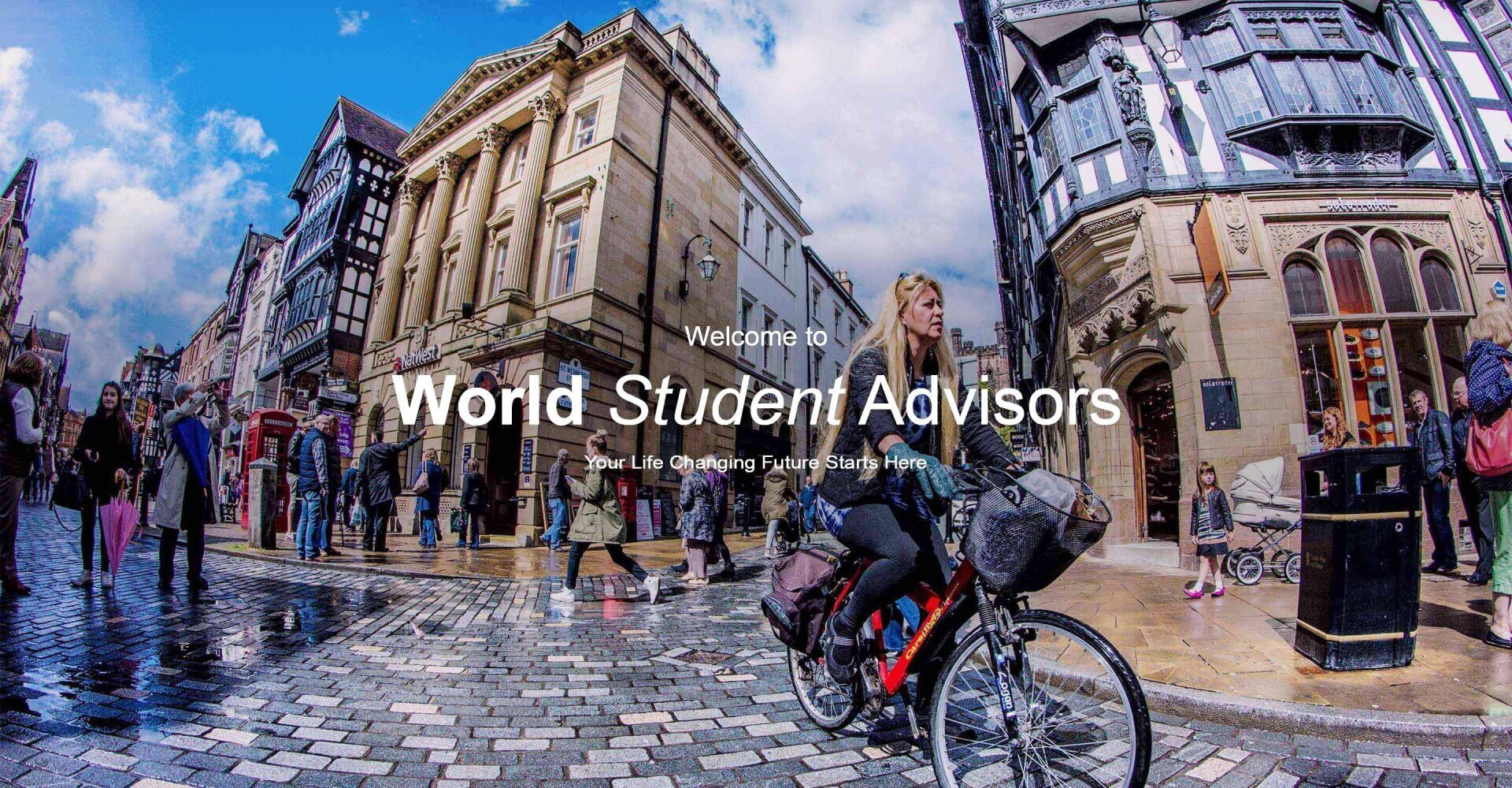How to apply for a UK Student Route Visa
Please scroll down for more information on how to write a CV and here is a podcast if you wish to listen to it
A step-by-step approach to applying for a UK Student Route Visa
Step one
Please accept your unconditional offer and pay any tuition fee deposits required by the University.
Step two
Please review the information in your CAS checking document, which you will receive by email up to four months before your course start date.
What’s a CAS?
A Confirmation of Acceptance for Studies (CAS) is an electronic document issued to students who need to make a Student Visa application. Your CAS number, which is required on your visa application, will be found on the CAS statement email you receive from the University.
When the CAS has been prepared, you will receive an email asking you to check the details of your CAS. Is all the information included correct?
If the CAS is correct, follow the instructions to verify the information
If the CAS is incorrect, follow the instructions to report any errors
Once you have verified that your CAS details are correct, you will receive your CAS within five working days
Accommodation fees on the CAS will always show as 0.00. You should book your accommodation immediately after you get your CAS.
Most universities ask for an accommodation deposit of about £250.
Any tuition fees paid, including deposits and University scholarships, should show in your CAS. Please look at this carefully; any outstanding funds need to be shown in your financial evidence with your visa application.
Make a payment or receive a University scholarship after receiving your CAS number. You will receive a separate notification informing you that your CAS has been updated with new financial information. Could you make sure you get an updated CAS?
Step three
Prepare your financial evidence.
You need to show funds which cover your first-year tuition fees plus living costs (sometimes referred to as ‘maintenance’). The required living costs are:
£1,136 per month for students in universities outside London, up to a maximum of 9 months (£10,244).
£1,483 for each month of your course, up to a maximum of 9 months (£13,337) for universities in London.
The earliest you can apply for a visa is six months before you start your course.
If you are self-funding, please ensure that funds are held for 28 consecutive days before applying for your visa online.
Step four
Prepare your other supporting documents.
https://www.gov.uk/student-visa/documents-you-must-provide
Include your ATAS certificate if it is required. This only applies to certain science and technology courses at RQF level 7 and above. If this applies to you, this will be confirmed directly by our Admissions Team and stated in your CAS.
https://www.academic-technology-approval.service.gov.uk/
Check if you need a TB test: https://www.gov.uk/tb-test-visa
Evidence of your academic qualifications referred to in the CAS
English language test evidence, but only if referred to on your CAS.
For students coming to study degree-level courses, your CAS will confirm that the University is satisfied with your English language level. You won't need to provide any evidence of this when you apply for the student visa.
The above list is not exhaustive, and you may need to include other documents, such as translations, a letter of parental consent or financial consent.
Step five
Complete the online visa application form https://www.gov.uk /apply-to-come-to-the-UK
You will be asked to pay the visa application fee of £490 (or equivalent in local currency). https://www.gov.uk/visa-fees
You can opt to pay more for any priority application services offered in your country.
You will also be asked to pay the Immigration Health Surcharge(IHS) to access the UK’s National Health Service (NHS). IHS fee for those under 18years is £776 per year while that of students above 18years is £1035 per year.
Step six
As part of the online visa application, you will book an appointment to attend a Visa Application Centre https://www.gov.uk/find-a-visa-application-center in person to submit your documents and take your biometric information (fingerprints and photograph).
Step seven
You will receive a vignette visa (sticker) in your passport, which will be valid for 30 days to allow you to travel to the UK. You will also receive a decision letter from UK Visas and Immigration confirming your successful visa application. You should show both the vignette and the letter at the UK border.
Your full visa will be printed on a biometric residence permit (BRP) and must be collected within ten days of arriving in the UK.
If your visa is for six months or less, the vignette will be valid for your entire visa duration, and you will not need to collect a BRP.
Obtaining a Student Visa is easier than you may think. But you have to follow the procedures carefully. Applying for a visa for the first time is new and uncharted territory. We have supported students for several years and have a good success record in helping students obtain visas. If you have any questions, please feel free to ask us. This is what we do: offer free and impartial advice.
Please send your questions to World Student Advisors Student Support Centre WhatsApp: +44 791 4797 830
How to comply with the "proof of funds" requirement:
For a self-funding student:
The earliest you can apply for a visa is six months before you start your course, and you will need to ensure that the necessary funds are held in your account for 28 consecutive days before you apply for your visa. You must show funds covering your first-year tuition fees plus living costs (sometimes called ‘maintenance’). Currently, required living costs are pegged at
- £1,136 per month for students in universities outside London, up to a maximum of 9 months, so the required total would be £10,244 + one-year tuition.
- £1,483 for each month of your course, up to a maximum of 9 months for universities in London - which would require a total would be £13,337 + one-year tuition
If your money is held in a foreign currency, this will be converted into pound sterling (£) using the spot exchange rate on OANDA for the date of the application; therefore, it is advised not to deposit an exact amount as there is a need to factor in fluctuating exchange rates. If the rate is to dip on one day within 28 days, the amount held in the account will not comply with the minimum required, and the Visa may be denied.
We advise applying for a Student Visa at a different time than one would be applying for a dependent's VISA. It would be best to allow the student to enrol and settle down, and then any dependents would follow. Apart from allowing the student to adjust before dependents come to visit correctly, a joint application would also slow the response time of the Visa office.
Your funds can be held in any form of personal or building society account, including a:
- current account
- deposit account
- savings account
- pension savings
- investment account
It must be in an account that allows immediate access, and the funds must have been acquired legally. If you were previously in the UK, you must not have earned them when working there illegally. Your bank statement should show information like:
- the date it was issued
- your name (or the account holder's name if it is your parent or partner)
- the name of the bank or building society
- balance on the account
You can go ahead and provide a download of electronic bank statements as long as it has this information. You do not need to have these stamped by the bank. Your application may only be accepted if the VISA office can verify the funds.
If a different person funds the student:
Where funded by a parent, the funds must be held in the parent's account whose name appears on the student's birth certificate. If the parent or guardian does not appear on the birth certificate, a legal document showing guardianship should be prepared to accompany the proof of income in the VISA application.
*Where the student has secured sponsorship by a third party, your WSA-appointed application manager will help you to confirm it is a recognised sponsoring body.



